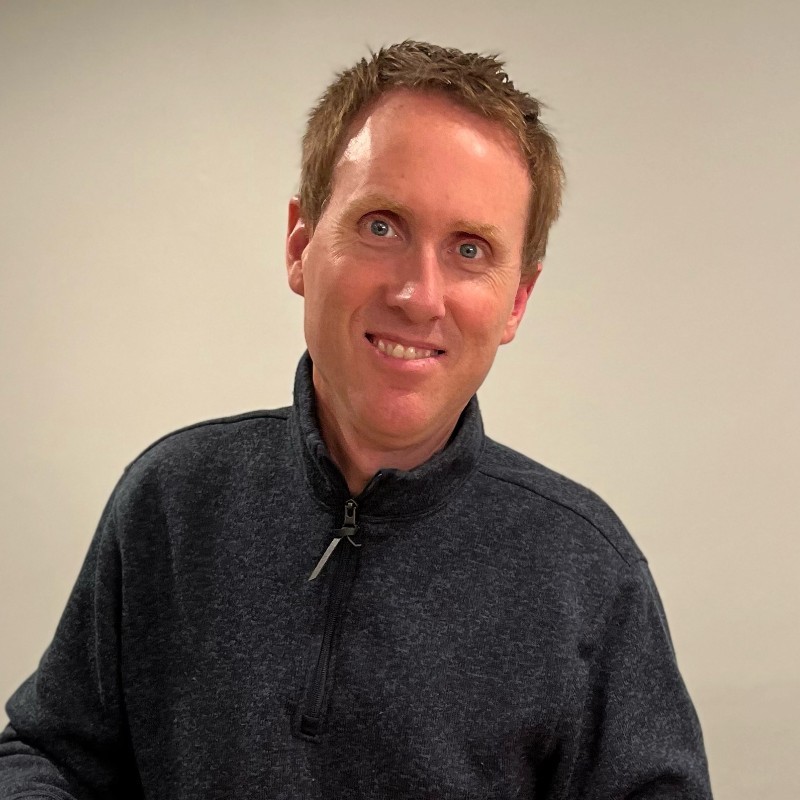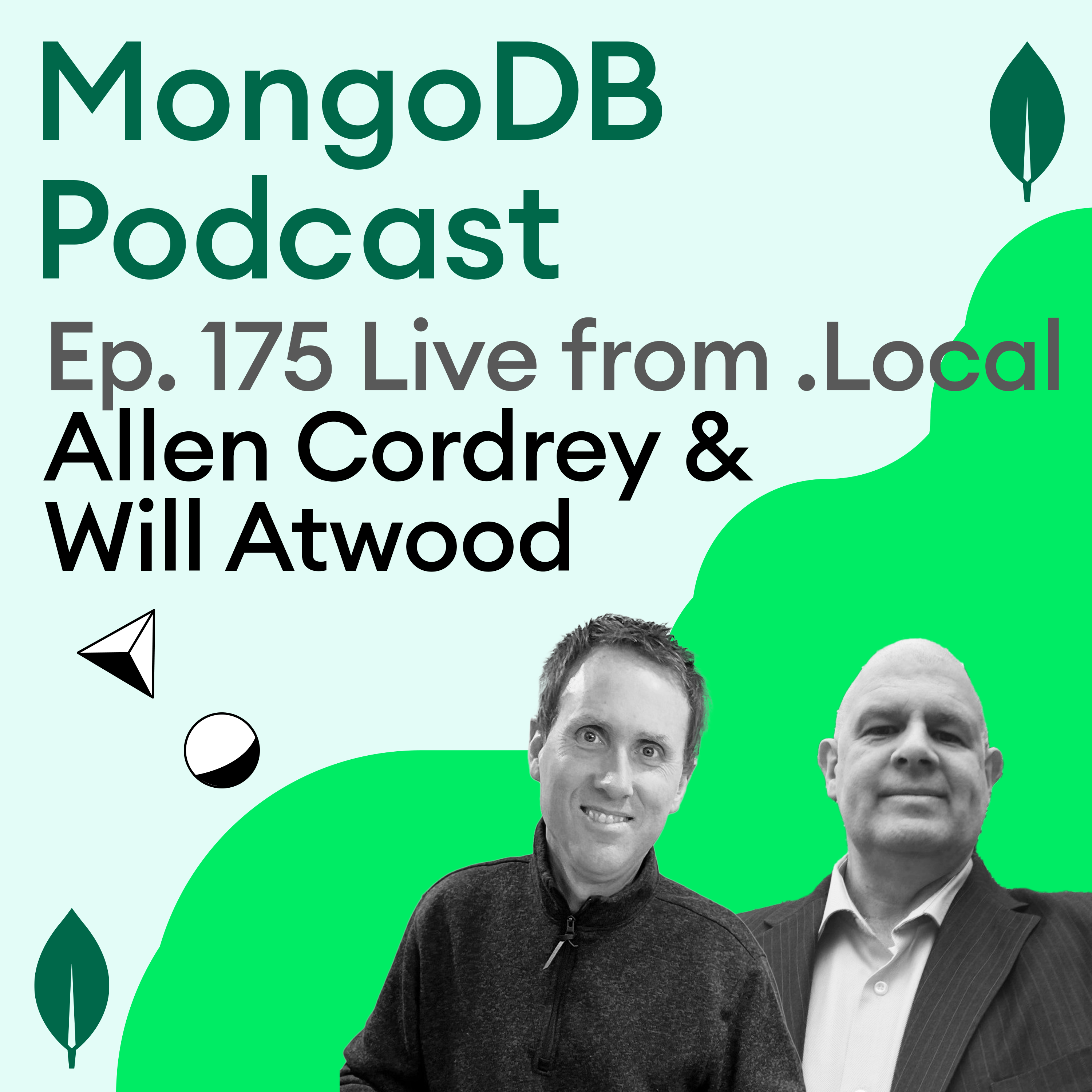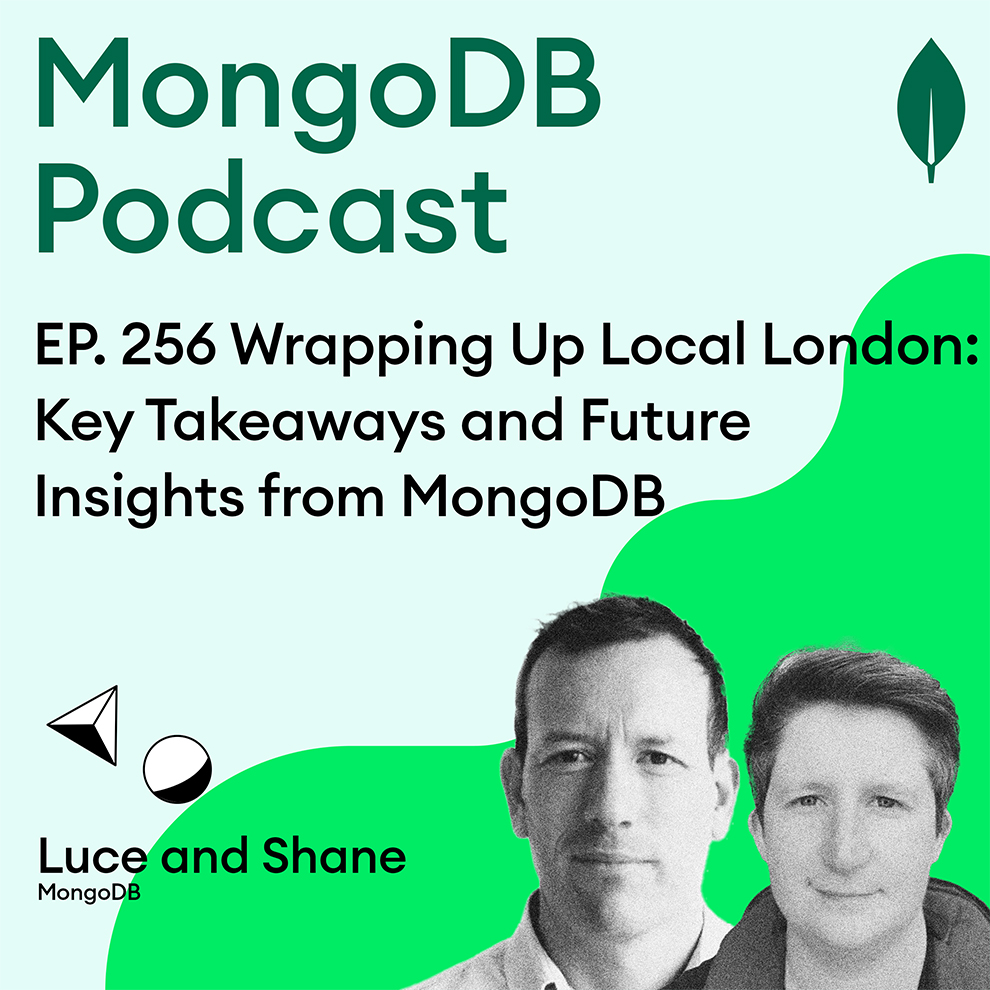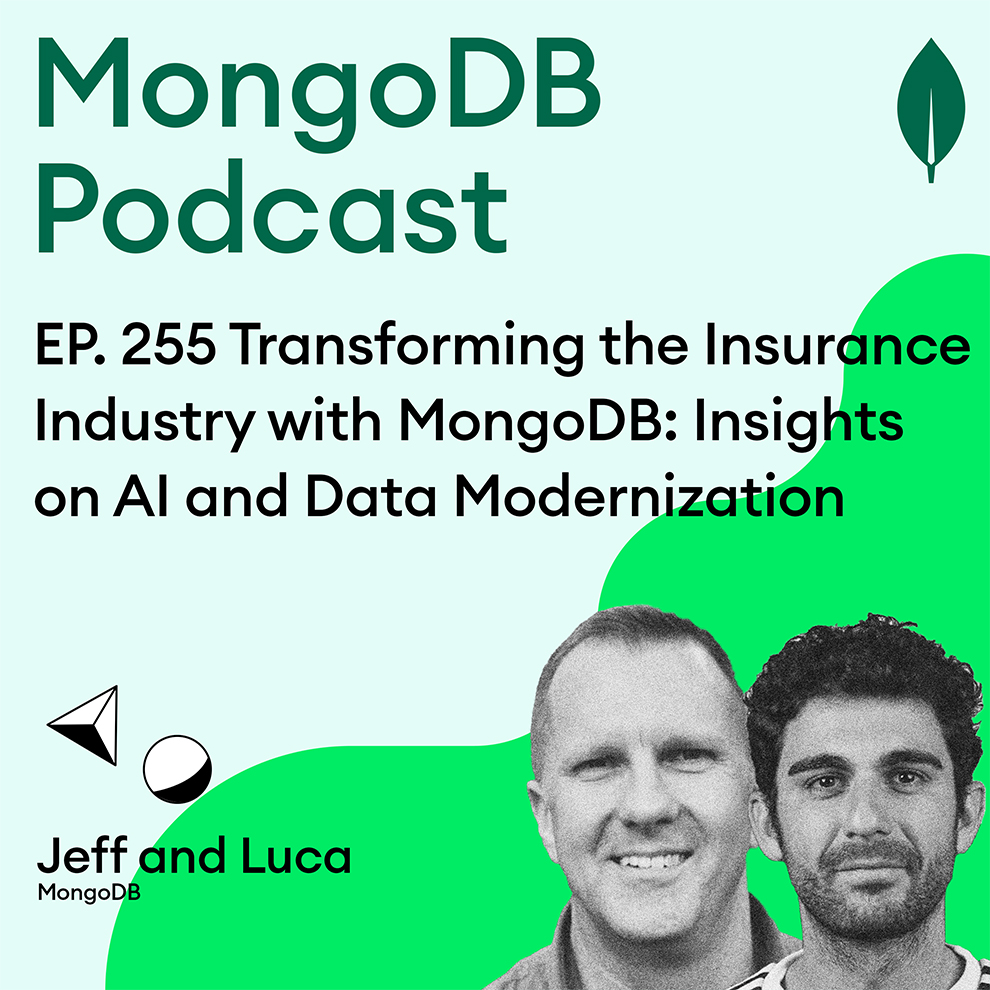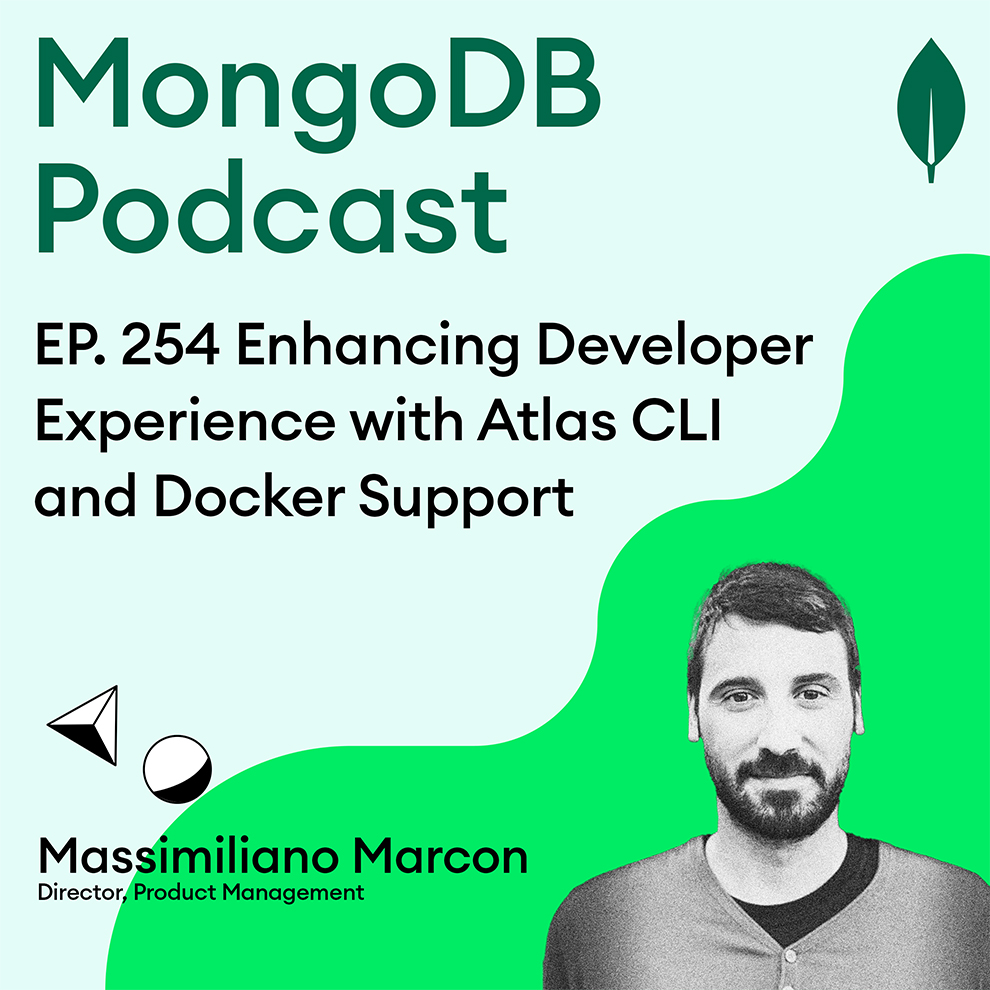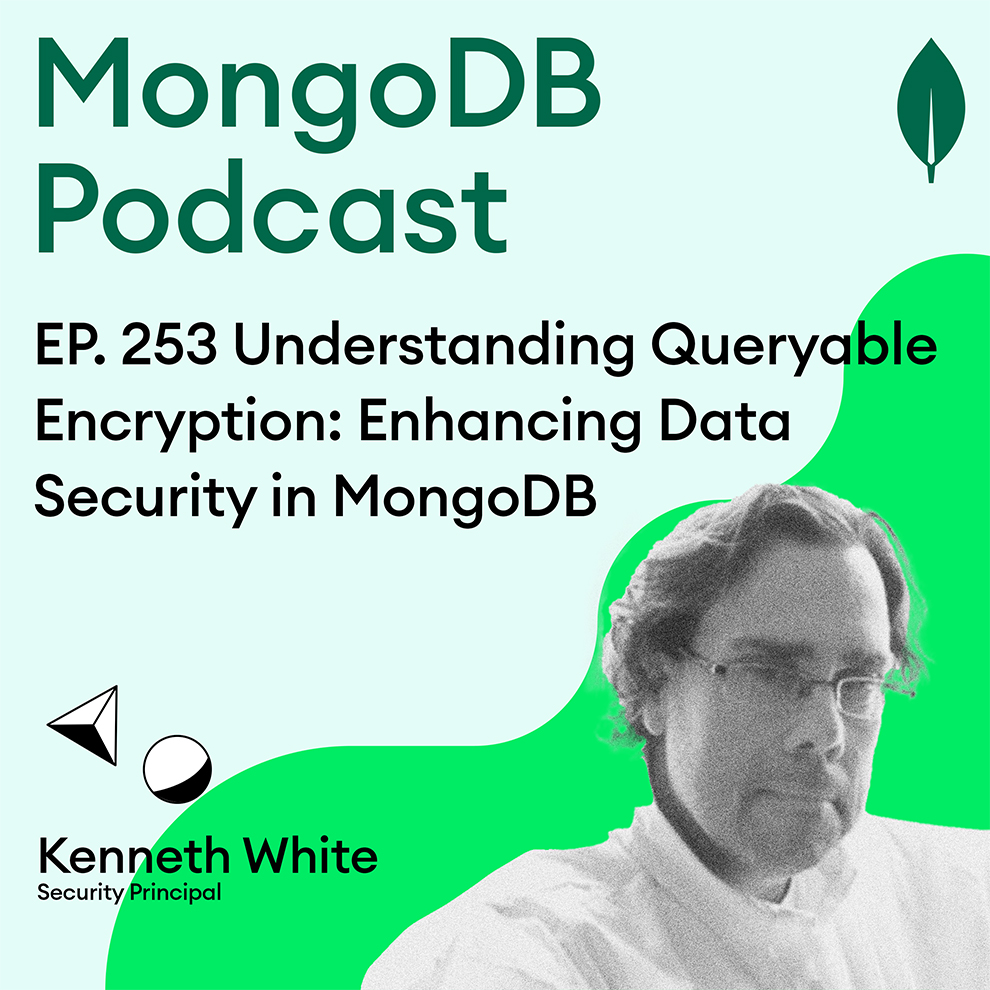Ep. 175: The Power of Community with Allen Cordrey and Will Atwood
- 0.5
- 1
- 1.25
- 1.5
- 1.75
- 2
Dave Nielsen: Hello everyone. Welcome back to MongoDB TV. My name is Dave Nielsen. I'm the Head of Community and we're here at the Javits Center at. local, New York City. And I've got with me two wonderful guests from our community who I have the pleasure of introducing to you. I've got Alan Cordrey and Will Atwood, both from Allison. Did I say that right?
Alan Cordrey: Yes.
Dave Nielsen: All right, I just got that right. Cool. So what we're going to do and what we're going to talk about today is what it's like to be a part of a community that actually meets in person. I know for some of you it's been a long time, it certainly was for me, but now it's happening, it's happening a lot. And we're actually on a tour to have over 30. local events around the world. So, lots of opportunity to get together and we would love to invite you to come out and join us in one of those cities. And if you're looking for them, you can go to our website or you can just search MongoDB, MongoDB. local and then your country and I'll bet you'll find it. So what we're going to do is we're going to talk about a story that happened in person last year actually at this event. So before we go any further, I want to have our guests introduce themselves. And first we'll start off with Alan. I want you to just introduce yourself and a little bit about yourself.
Alan Cordrey: Sure, no problem. I am actually a solution architect. I've been with the company I'm currently with for six years now, but I've actually been in technology all back, actually you and I talked about it since Windows for Workgroup, Windows 3. 11, so a long time. But we've been using MongoDB for about two years, two and a half years. So, that's what we've been working with.
Dave Nielsen: Great. And Will.
Will Atwood: Yeah. Hi, Will Atwood and I'm a developer at Allison. I've been working there for exactly one year, since that's where Alan and I met one year ago. I'm happy to be here, happy to be part of the community and that's been really life- changing for me.
Dave Nielsen: That's great, and that is why we're here. So let's just jump right into it. How did you two meet? Why don't we hear the... I'd actually like to hear it from you first. Where did that story begin for you?
Alan Cordrey: I think it actually probably would work best with Will starting, because you figure we both... He actually started it, as all things.
Dave Nielsen: Okay. We'll do that then. Okay, great. How did you guys meet?
Will Atwood: I'd be happy to. We will get back to this, but when I went to bootcamp, one of the things we learned in bootcamp was MongoDB and how incredibly easy it was to work with. And basically, we did an application that was hooked at that moment. So, bootcamp finished and I was ready to start networking, get my resume out there and I found out about the MongoDB Convention and I was like, " What a great opportunity to come down here, meet with all the folks that created the technology that was so mind- blowing when I was in school." And so, MongoDB Convention was coming up and I jumped up the opportunity to come down here. Don't tell anybody, but I totally crashed it. I did not pay my way in.
Alan Cordrey: Really?
Will Atwood: I got here, they just handed me a badge and I didn't pay the money to get in. That's a total secret right there. I'm letting it a slip for the first time right here, live on radio. And it was just an unbelievable opportunity. And one of the days we had to get up on stage, or there was an opportunity to get up on stage to tell your story and I was like, " I have to do this right. I'm here to network, to get a job and to meet people and you've got to swallow your fear and do it." And so, I got up on stage, and I'll never forget it, my hands were shaking so bad I couldn't hold the microphone. And I told a story about how I originally fell in love with technology, which happened to be a guy that was dating my mom. He worked for Bell Labs working with the operating system for Bell Labs and he bought me my first 386 Dell computer when I was a kid. And that's where I originally fell in love with technology. I told that story and Alan was there, he went on stage right behind me and I was also mesmerized by his stage performance, and I'll let him talk about that.
Dave Nielsen: All right. So, you followed him right up. Did you see his talk or?
Alan Cordrey: No, actually I was talking to the community leaders at the time, because I was trying to get working to get the Dallas MongoDB users group set up. So we were working through this. And one of the community leaders said, " Hey, we've got an opening on the stage, will you just kind of come up and tell about how you got into technology and talk about how you're using the technology and what you're doing?" I said, " Yeah, why not?" And I got up there, and honestly I can't remember what I said, just to be real honest. I just kind of talked through things. And we were wanted to give the point that one of the things we were focusing on was making sure we can bring in people who are going to second careers and why that was important and why people with that, knowledge is nice, but having that real world experience, management experience, being out there and knowing what different work is like, I think helps quite a bit. And so, I just talked through that. And as I got off the stage, Harshit, one of the community leaders goes, " You got to meet this guy Will Atwood, he sounds exactly like what you're looking for." And so he went and got Will. And Will and I spoke. And then, we actually were here in the Javits Center up on the mezzanine for an hour just talking. And Will was just talking about his passion for technology and the app he wrote and what he learned at bootcamp and what he wanted to do and how he had come from being in construction, and that's also part of your story, and being in true physical architecture and how he transitioned to that. And I just found his passion for technology as just amazing. So I actually called up my boss after we had done talking and said, " Are we still hiring?" And he goes, " Well, we are for the right situation. Why?" I said, " You got to meet this guy, Will. This guy, his just got this incredible passion for it and he's already deployed things out into Atlas and he's got working apps. I think we got something we can work with." And so my boss, he agreed to it. I'll let Will pick up and fill in more details, where he was going with it.
Dave Nielsen: Well, so on the flip side. You're having this conversation on the mezzanine. And what I'd like for the viewers to understand is that it really does pay to get out, literally to put yourself out there, to talk to people. Obviously you don't want to be pushing or anything like that, but sharing that you have passion, sharing that you're excited about what you're offering to do, I think is a really important part of it. So, you got up there and told your story. I'm just kind of curious, what do you remember about talking about on the mezzanine?
Will Atwood: It's just about making those connections with other people while you're here. We have that opportunity to come together in person and see each other. And so, I think I told my story about how I was running my own business in construction. I had two kids, kids change everything. They're not kidding when they said that, they change everything. So, two of the most beautiful people I've ever met are my daughters. And so, 2008, 2010, I don't don't know if you remember, there's a major construction disaster.
Dave Nielsen: I do. Yes, right. Housing bubble.
Will Atwood: Exactly. So, I shut the company down and became a stay- at- home dad. And it was during that time where I fell in love with Linux. I couldn't afford a new MacBook, it was like $2, 000, next to a three- year- old, it's never going to work.
Dave Nielsen: No.
Will Atwood: So, I went down that rabbit hole of Linux, everything I could, raspberry pies, building my own rigs, making firewalls, NAS boxes, all that fun stuff. And then, the kids got older and I was like, " Okay, I don't need to stay home and feed you bottles every day in diapers. What can I do?" And so, I started to start my company up again, but I was ready for a change. I was like, " I can't do this again. Climbing ladders, I'm done with this, I can't do it anymore." So it was at that moment, I'm like, " What's my other passion? What's my other love?" It's technology and computers. And so, that's where I found Hack Reactor, great bootcamp. If I can plug them shamelessly.
Dave Nielsen: Sure, Hack Reactor. Plug Hack Reactor.
Will Atwood: Exactly.
Dave Nielsen: Of course.
Will Atwood: It was an intense program to go through the class and made some great friends, learned all about programming a JavaScript and Node JS, MongoDB, PostgreSQL, that sort of stuff. And it was one night, every week somebody has to give a talk about technology, and somebody gave a talk about Atlas and MongoDB. A two minute talk. They set up an account on MongoDB and Atlas and then launched a cloud database in less than two minutes. I was like, " Okay, this is revolutionary. This is unbelievable how easy this is." And I'm like, " I got to find out more about this technology." That night I launched my own Atlas cluster, did the whole thing and up and running in a database in five minutes and I'm starting to hydrate it and fill it in. And so, that's when I knew I got to find out more about this technology and come here. And that's where I met Alan.
Dave Nielsen: And the rest is history. So, now I just want to take a pause just for a moment and shout out to our own community, because we do have a very alive and active community online mostly, 169, 000 members. So, if you have a question and you don't find the answer from the inaudible, please come to our community and ask your question there, I'm certain you'll get an answer. And another thing I wanted to shout out, is that our community is not just the forums. We actually just launched a new webpage at mongodb. com/ community, where you can go and see what opportunities there are to participate in our community. We have the forums, we have our champion program, we have our user groups, and we're just launching virtual user groups, we're based on time zone ranges. Please come join our community, be a part of it, come in person when we have their. locals. We're promoting those through our community as well. We'll probably send an email out to let you know when when's coming near you. And I was also curious about, do you participate in the community at all? Ever ask questions online or anything like that?
Alan Cordrey: Let's kind of jump through there. Something about the, I wanted to bring about the communities especially. Obviously you have a great, you can go on forums, you can ask questions, got some Discord stuff. But the live events are really key. You'll find that the speakers from MongoDB are some of the most accessible people who want to share their knowledge and share their passion. I came to World last year not knowing a lot, I'd done one project in MongoDB. And the people who are willing to sit and talk with me who are high level senior engineers, senior advocates, those kind of things, that just took time to chat with me, really bought my passion into the technology quite a bit. And you get that at a . local if you can do that. I kind of also like the virtual events, because it's almost like a try before you buy, right? I can go check it out, see if there's there. And then if there's something local, either a user group or a. local, I can say, " Oh cool, I kind of know what that is, I can go find people to interact with." So, I think that it's a great transition thing. It serves two purposes. If you don't have anything around you, you can still attend a virtual, but then if you want to just kind of check it out, you're not willing to commit yet, meet people, that's a nice way to do it. So I think that's pretty cool.
Dave Nielsen: And you got yourself kind of involved, didn't you, down on your in Dallas?
Alan Cordrey: Yeah, a little bit.
Dave Nielsen: What are you doing down there?
Alan Cordrey: Well, I actually run the MongoDB users group in Dallas. August 9th, we will actually be celebrating our one- year anniversary. I've got Karen Ulamay, who is actually going to doing the AI presentation here, she's going to do it down there for us too. And Brett inaudible from Confluent is actually going to walk you through how to migrate from Oracle to MongoDB using Confluent with everything just put right into the cloud and how you keep that data in sync the whole time. So, two really powerful speakers, and I'll be talking a little bit too. I'm like the opening act. I got the Rolling Stones and Bruce Springsteen and there's me. I'm like cheap trick.
Dave Nielsen: Hey, and that turned out well for them. Well good. Those are two powerhouses you get to have in person inaudible
Alan Cordrey: Exactly, and ask questions to them. And that's one great thing. I always make sure that our speakers are very interactive with people. You can either ask after their presentation or during the presentation or after the event, where they're just hanging around and talk. Every time we've had this event, when it's closing time, we literally have to push people out the door because everybody's passionate about what they do and they like to talk about it, they like to share that knowledge. And so, those people are really, really great to have around.
Dave Nielsen: Yeah, there is definitely something about being in- person that you just don't quite get. We are going to do these online events and I think they will be great, but they will be missing that one component of the in- person. There's something you just can't quite... Maybe when these VR goggles will get really... I don't know. I kind of suspect that maybe it won't be the same, but it is wonderful. I've been running meetup and user groups for 20 years and I just get a lot of energy from them. So, we're going to be doing that un- conference tonight. I love those, because there's a lot of energy in those events. So, for those of you watching, we hope to do some more un- conferences. We're going to do this one here after the. local today, after the reception. And we hope to do one in some of the other. local venues, possibly London or Bangalore or something like that. So, reach out to me if you're interested in having an un- conference in your town and I'll see if we can make that happen.
Will Atwood: Dallas, Texas. Dallas, Texas.
Alan Cordrey: Yeah, that's how these things happen. Somebody mentions it and then before you know it, somebody else falls on and there you go.
Dave Nielsen: The. locals, I just wanted do a shout- out to our teams organizing our. locals, they're everywhere. We have 30 of them around the world, that is more. locals than AWS is doing their summits, which that's pretty impressive. So, take a look at that website. Again, shout out. Nudge, nudge, wink, wink. Go check it out. So you just shared with us a use case so that Oracle to Atlas with Confluent use case. What I wanted to talk about a little bit more is, from your experiences and you shared a little bit, before you actually got involved by coming to this, last year it was.
Will Atwood: World, mm- hmm.
Dave Nielsen: ...world, MongoDB World. I know you were just out of bootcamp, but what kind of things got you started with MongoDB inaudible
Will Atwood: It was one of the apps that we were launching as our senior projects at school. We were doing an app called scriptly. us. The team was going to take text that politicians or anybody wanted to give a speech on and then analyze that text to find out anger, happiness, kind of like what-
Dave Nielsen: Sentiment type stuff?
Will Atwood: ...Yeah. What is it, Grammarly? I think Grammarly will do the same thing.
Dave Nielsen: Yeah.
Will Atwood: So, we were trying to build something like that, and I was in charge of the backend, launching the MongoDB. And me and the other guy who gave the talk about it, we're putting that together and then figuring out how to hook everything up to it and then being in charge of the backend. What made it so amazing, is because it was in the cloud and because it's cloud native, all of us could access it at any moment. And so, there was no barriers to managing that data. My teammates could access it, I could access it, it wasn't centralized onto one computer. So, it's a developer first application. And so, in this new world where the data's coming completely different, I think MongoDB found out that there needs to be a new paradigm. We can't continue to use the same paradigm that we've been using all these years. It's worked well, it serves a great purpose. But I think they realized that with streaming events, something needs to change. And so, they started from the ground up and said, " Let's remove this friction between the objects in your code and the objects that you're going to store in the database." Because no longer is the hard drive is the problem. It's cheap.
Dave Nielsen: That's right.
Will Atwood: You've got unlimited hard drives face at this point.
Dave Nielsen: Pretty much.
Will Atwood: And so, we've crossed a line and I think MongoDB realized that and it's in the right place at the right time.
Dave Nielsen: Yeah, there's a difference between deploying an app and deploying a database. You can deploy a stateless app, you can't deploy a stateless database. And so, having it in the cloud where they're taking care of all that for you, I think really makes a difference. Although some people still prefer installing it themselves and running it themselves.
Will Atwood: But why would you want to do that? MongoDB takes care of sharding and they take care of replication. Let's say you want to throw it over to West Coast, as far as the East Coast, automatically, you just launched it over there and the data migrates over.
Dave Nielsen: Hey look, you don't have to sell me on it. But some folks, they might have their own on- prem issues, whatever it is. Maybe they want to use it for some reason for, I don't know... I really don't know. But maybe it could be security, maybe it could be just controlling their own environment. Who knows? But yeah, most people are moving towards the cloud, for sure.
Alan Cordrey: I really got to thinking that, imagine if you were doing your app now with the Vector machine learning and finding context of everything, how cool that would be with the Vector announced today. It radically would've changed it, so you wouldn't have actually had to actually figure out what the context is, they would've figured it out for you. Because you could have put all the text into a Vector and then actually ran a machine learning against it and actually could have gone through there and said, " Ah, this verbiage is very angry, this is very forceful, this is whatever." That app you spent all that time writing, you probably could have wrote like 40 lines of code down and-
Will Atwood: Thanks a lot.
Alan Cordrey: ... put itout market.
Will Atwood: You're not making this better.
Dave Nielsen: We are running out of time here. So let me wrap up with just talking about that for just one second. We had these announcements. We had the announcement about the Vector database and the stream processing.
Will Atwood: Stream processing.
Dave Nielsen: Is that something that you feel like you have ideas for or you think you might use?
Alan Cordrey: Yeah, actually my boss is also here and we were talking about, Vector solves a problem that we've been trying to work with. When you're doing contextual search, they give you what they call hallucinations, which I love that term. When you get erroneous response back. And so, we were trying to work about how do we get this, because we're getting a lot of loose inaudible on this. Being able to use Vector and being able to use machine learning on this really improves that a lot. So yeah, there's a straightaway something we're going to take away from this and actually use.
Dave Nielsen: Yeah, great. I'm glad to hear that. I'm excited about that too. I just want to thank you both for coming and joining me and sharing a little bit of your enthusiasm, I can really feel it. I don't know if you can feel it, I can feel it in this room, I feel the enthusiasm. And we look forward to seeing the audience at one of our events in person perhaps, or at least on a virtual event and hearing more about what you guys are up to perhaps next time. So, thank you very much.
Will Atwood: Thank you.
Dave Nielsen: Okay.
DESCRIPTION
Join MongoDB TV Podcast at .local Live NYC with Will Atwood & Allen Cordrey , rom the Eliassen Group, as they delve into the dynamic world of technology and community. Uncover their inspiring stories, from transitioning careers to crafting apps This episode is a testament to the transformative power of passion, connection, and the tech community. Hosted by MongoDB's DevRel Senior Director Dave Nielsen.
Listen for:
- [02:17 - 05:54] How Will and Allen met
- [08:42 - 11:01] The impact of community
- [14:15 - 17:12] How Will and Allen first got started with MongoDB
Today's Host
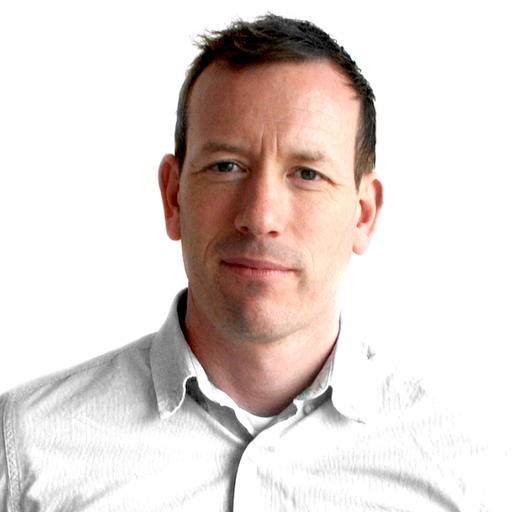
Shane McAllister
Today's Guests
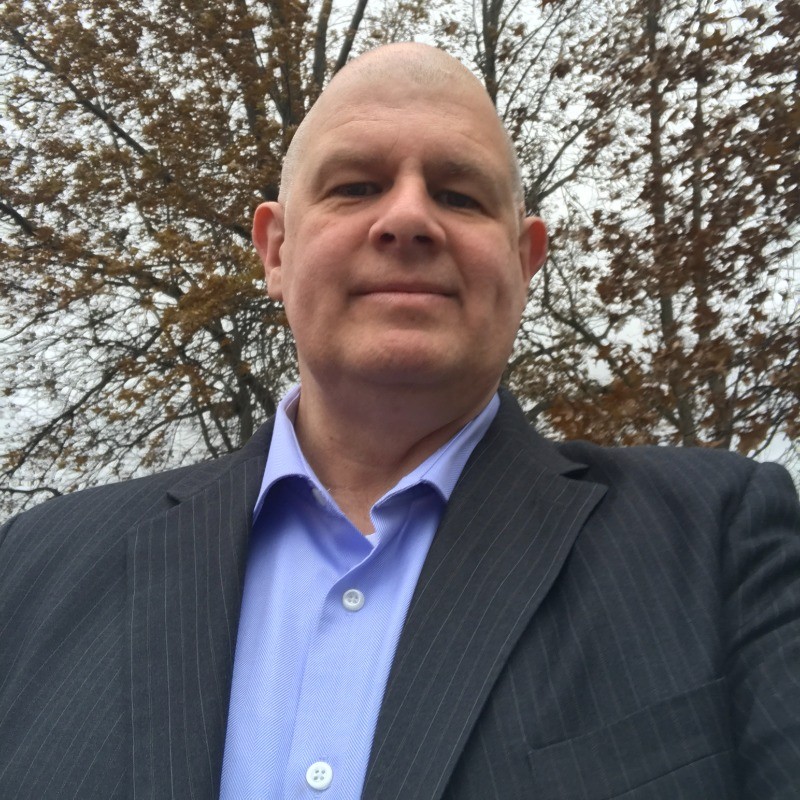
Allen Cordrey
